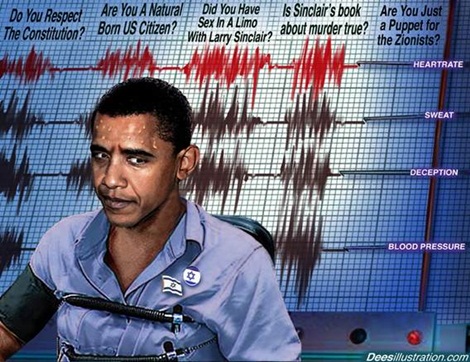
By Pat Shannan
ATLANTA, Ga.—Although most Americans don’t know it because of a news blackout, on January 26 the issue of Barack Hussein Obama’s eligibility to be president was finally heard by a lawfully-seated state judge in Atlanta, Georgia.
Administrative Judge Michael Malihi will render his decision “sometime in February” as to what he will recommend to the secretary of state of Georgia, in whose hands the final decision lies.
Prior to November 29, 2011, plaintiffs Carl Swensson and David Weldon filed a timely challenge to Obama’s eligibility to be on the ballot in Georgia. Obama’s attorneys countered by asking the court to dismiss the case, which had been a successful maneuver many times in federal court. However, the Georgia court denied this, saying that the state law was clear and the question of eligibility had to be answered. A hearing was set.
Civil subpoenas served out of state are not mandatory, and Obama and his chief attorney, Michael Jablonski, chose not to appear on January 26.
The day before the hearing, Georgia Secretary of State Brian Kemp received an email from Jablonski, which stated he would not be there and that “the courts had validated the legal position so many times that there was no legitimate issue here.” The truth is, though, no such challenge had been heard before any court, and this was one that only a state court could hear. The challenge was not designed to remove Obama from the presidency but rather to remove his name from November’s ballot in Georgia unless he could prove his eligibility.
When the defendant’s table remained empty at 9 a.m., Malihi offered the customary summary judgment. However, plaintiff attorneys Mark Hatfield and Van Irion refused the offer pending further discussion in the judge’s chambers. There they pleaded for 20 minutes that the facts of their position be heard for the official record. They argued Jablonski failed to appear because he had no evidence to defend his position. After all, Obama has already admitted many times that his father was never a U.S. citizen, which renders moot any arguments concerning the legitimacy of the sitting president’s birth certificate and multiple Social Security numbers or where he might have been born.
Hatfield and Irion could have used the easy way out to victory by accepting the summary judgment on the spot. However, in doing so, the plaintiffs risked Jablonski telling Kemp that Obama could not be legally removed from the ballot because no evidence had been presented showing Obama ineligible. Such a scenario might have succeeded in allowing Obama’s name to remain on the ballot, and the deceitful cover-up would continue. But the plaintiff lawyers realized Jablonski’s ploy, and Malihi agreed to proceed with the hearing to get their evidence on record. The courtroom and three spillover rooms, supplied by closed circuit TV, were filled by several hundred people.
The hearing was over in only two hours. Plaintiffs Weldon and Swensson each took the stand briefly to explain the simplicity of their challenge: Obama is constitutionally ineligible—lacking natural-born status because both parents must be U.S. citizens. They immediately had their part of the record closed without any further “muddying of the water,” according to Swensson.
Pat Shannan is an AFP contributing editor and the author of several best-selling videos and books.

